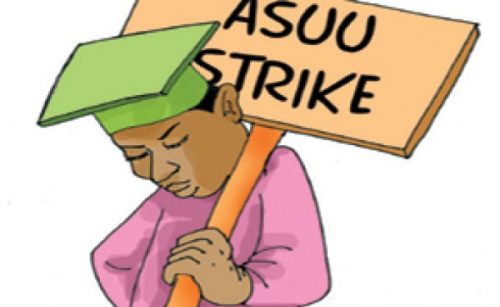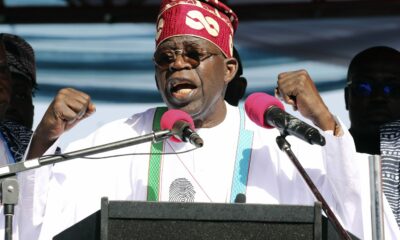Latest News
ASUU set to embark on another nationwide strike

University lecturers are heading for another strike over the re-negotiated 2009 agreement with the Federal Government, it was learnt at the weekend.
There are indications that the National Executive Council of the Academic Staff Union of Universities (ASUU) will meet on February 14 to review the implementation of some components of the agreement and decide on industrial action.
It was learnt that the re-negotiated agreement has five components, including funding for revitalisation, autonomy for universities and welfare.
The committee, which re-negotiated the agreement, was headed by Prof Munzali Jibril, Pro-Chancellor, Federal University Lafia, Nasarawa State and Chairman, Committee of Pro-Chancellors of Federal Universities.
An ASUU leader, who preferred not to be named, said there had been a lack of progress in the agreement since it was re-negotiated last May.
The source said the government team on the committee proposed certain figures which were adopted with an assurance that the government team had the authorisation to push through the agreement.
He said: “The government side proposed something (new salary) and ASUU asked the government team if they had the mandate of their principal regarding what they proposed and of course, they answered yes, but said they will have to go back to consult.
“After the re-negotiation had been concluded, they said they had to go back and discuss with their principal. That is where we are with negotiations on all five chapters.
“The five chapters of the 2009 FG-ASUU are funding for revitalisation, the autonomy of universities, welfare of lecturers and four and five are related. These are things we bring up each time we go on strike.
“Let them go and sign the re-negotiated 2009 agreement. It has always been like this with the government.
“The antics of government regarding ASUU is always like this: We go on strike for government to come to the table for us to negotiate. After concluding the negotiation, we always have to go on strike for them to sign it and again go on strike for them to implement.
“It has always been like this right from 1992. It is not new; it is the character of the government.
“What is playing out now is what has been since 1992. Three stages: you will go on strike for them to negotiate, you will go on strike to get them to sign the agreement that they willingly negotiated then the final stage you go on strike to get them to implement.
“This is not going to be the last strike. People should know that because after this, there will be another strike probably for them to implement that agreement.”

























